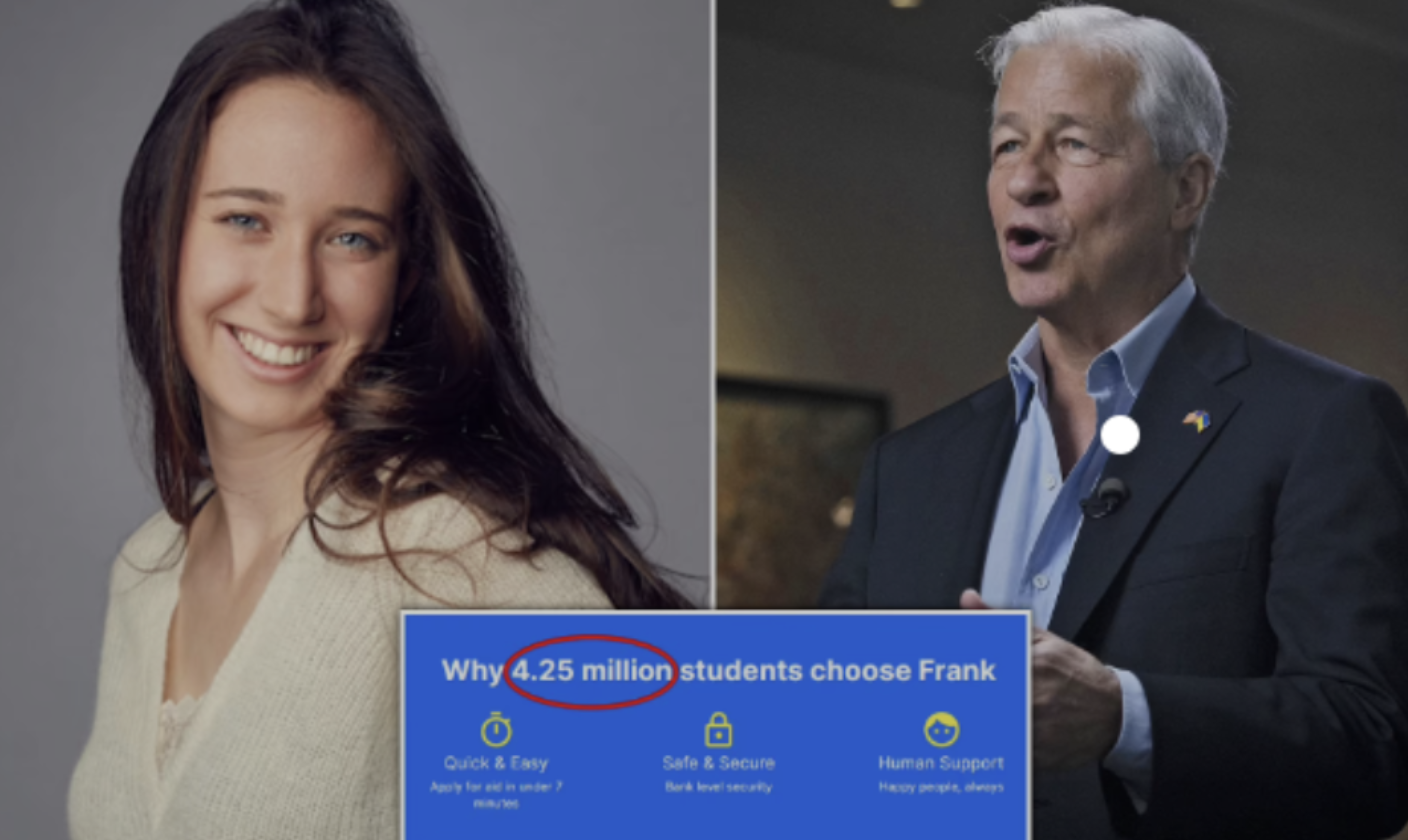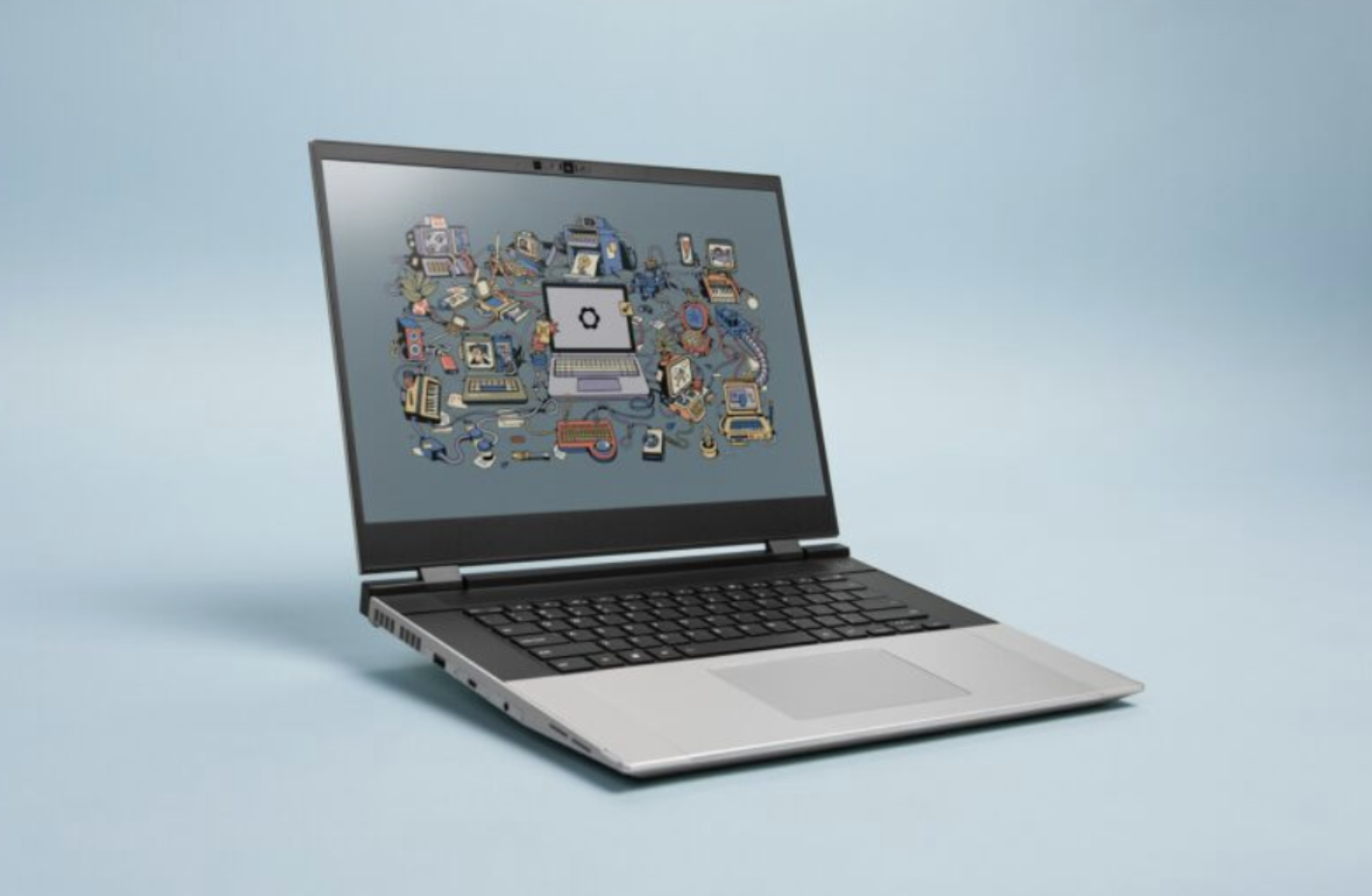
Dear Studio Fam,
We've written a lot about fintech frauds in crypto but this week we bring such news from the traditional side of finance. There's also a rundown of the latest product changes and side dramas at Twitter, a short byte on Substack's upcoming features, and a spotlight on a laptop manufacturer that some have called the "anti Apple" for its commitment to upgradeability and repairability.
Frank Fraud: CEO Arrested for Bilking Chase

Charlie Javice, the Forbes 30 Under 30 alumna and former CEO of fintech startup Frank, was arrested this week on charges related to an alleged fraud to inflate user numbers during acquisition diligence by JP Morgan Chase. The megabank, which ended up acquiring Frank in late 2021 amidst a frenzy of fintech activity, discovered only after the deal had closed that the vast majority of Frank users were fake.
Frank was portrayed in fundraising materials as a millennial and Gen Z-friendly start up dedicated to helping college loan recipients pay off their debts faster. In reality, according to accusations by Chase and Federal prosecutors, more than 95% of Frank’s users had been falsely created by Javice in coordination with a data science professor. Javice allegedly hired the professor to create millions of fake accounts and a fraudulent record of user actions.
The willingness of Chase to go public with what is essentially an admission that they were duped is remarkable given Chase’s stature as the largest US bank. Previous reporting by Forbes revealed that none other than Chase CEO Jamie Dimon led the acquisition effort and readily believed Javice’s claims that Frank was a user “acquisition machine.” Federal prosecutors outlined in their indictment other allegedly false claims made by Javice during the diligence process, including that Frank “knows more about our students than any lender, college, or employer.”
Javice is counter suing for the $45 million payout promised to her in the acquisition agreement, claiming that she is the target of sexist abuse to cover up the failings of Chase.
Substack Debuts Notes And It Looks Familiar

Substack, the independent publishing platform that we previously reported is raising a $65 million Series C, has debuted its newest feature and it looks very familiar. Notes, which has not been given a specific release date, is billed not as a social network but a “subscription network.” It will not have any ads and only include content from Substack writers to which the user pays to subscribe.
Twitter Blue Checks Come and Go

Once upon a time, the Twitter Blue Check Mark was a coveted form of social status in the tech world. Becoming a verified Twitter user required an application and formal declaration of one’s notoriety which was then subject to a random and vague approval process with no opportunity for feedback when denied. Rumors spread that Twitter employees were secretly selling verification, and political considerations seemed obvious in the face of verification denials of prominent conservatives and Covid skeptics.
That regime has come to an end and this week marks the first time that verification on Twitter is only available to paying users. Individual accounts can get their blue check mark for $7 ($11 if purchased through iOS) and institutions must pay at least $1000 for a special gold check mark. However multiple prominent organizations have publicly stated they won’t pay for any sort of verification, including the New York Times and The White House.
Small Bytes: Even More Twitter Drama

In the wake of the cancellation of legacy blue check marks on Twitter, here’s a rundown of other notable changes to Twitter and prominent reactions.
- Washington Post Fact Checker Double Fact Checked by Community Notes
- Twitter Labels NPR as State Affiliated Media
- Trump Still Not Back On Twitter Despite Indictment
- Late April Fools Prank Dog Rebrands Twitter With Doge
- Twitter Facing Fines For Not Censoring Enough In Germany
Framework Launches Laptop 16, An Easy To Repair & Upgrade Gaming Laptop

The majority of high-end laptops on the market today, especially Macs, are extremely difficult to upgrade, making it difficult to repair or replace individual components. Framework, a startup founded in 2019, is disrupting the industry by creating a modular design approach that is in stark contrast to the traditional computer industry's habit of soldering components together and planning for obsolescence. Their latest project, a 16-inch modular upgradeable gaming laptop, is a continuation of their mission to create a more sustainable and customizable computer ecosystem.
Framework's laptop design allows users to swap out components such as the keyboard, screen, battery, and even the motherboard, making it easy to repair or upgrade specific parts as needed. This modular design approach has the potential to reduce electronic waste, as it prolongs the lifespan of a computer and reduces the need to replace the entire device every few years. Additionally, Framework's laptop is not only sustainable but powerful, as it boasts a high-performance NVIDIA graphics card, an Intel Core i7 processor, and up to 64GB of RAM, making it a viable option for gamers and power users alike.
While we are fan of Apple’s sleek and integrated designs, you’d think that a company which professes grand commitments to sustainability might adopt a similar approach to hardware design.

